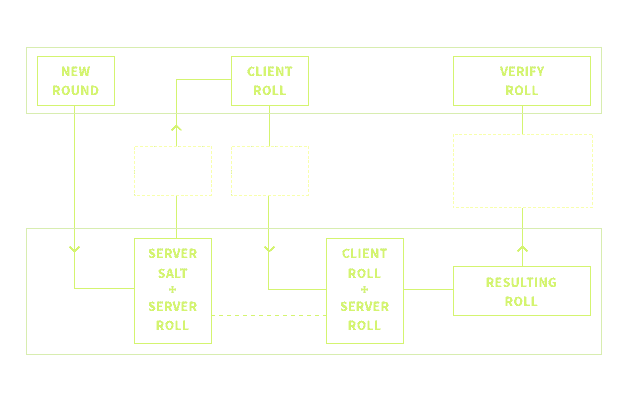Provably Fair: making online gambling more transparent
Gambling made more transparent
If you love to play poker, craps, blackjack or roulette then transparency on the side of the casino as well as any other participant is something you take seriously. The last thing you want is to lose due to a sloppy shuffle, a faulty roulette table or even worse, the casino cheating.
At a physical casino, you can always ask the dealer to let you cut the deck at the table. This simple act evens out the playing field and drastically diminishes any cheating shot by the house.
On the other hand, you cannot cut the deck while playing online. The best you can do on many gambling sites is to trust that the software is not rigged. This is despite the fact that you have no access to its backend and, therefore, have no clue how it works. Of course, some online casinos are regulated and audited periodically by independent agencies such as eCOGRA. The 3rd party intermediaries do guarantee some fairness however they often lack the tools and capacity to ensure that every winning odd is legitimate.f
The Bitcoin technology answer: Provably Fair

Provably Fair
Thanks to Provably Fair, a technology that uses cryptography values, you can now play online roulette or blackjack at Bitcasino.io or Bitstarz.net and prove that the game is fair or not. In fact, the technology, which is at the foundation of Bitcoin, gives the transparency of a physical casino to an online one.
It eliminates the need to trust the casino, a third party or anyone else for that matter. This is because; there is no way to manipulate a wager that uses hashing proof. It is important, however, to note that using Provably Fair does not necessitate an online casino to accept bitcoins. It is only a technology that is borrowed from Bitcoin.
To understand how the concept of Provably Fair works, it is important to wrap your head around the term hashing.

Application in Provably Fair
Online Betting Games
This same hashing can be used to cut the deck and confirm that it has not been tampered with, just like in a real casino. It verifies and self – audits wagers to ascertain they are fair and thus, provably fair

Let us use a game of online cards as an example
- For a game of cards, the online casino will use an auto-shuffler on a deck of cards. The resulting deck is called an initial_shuffle. Casinos that do not use Provably Fair will hand you the deck at this point.
- In step 2, the house will generate its random data called a server_seed. Combining the intial_shuffle and the server_seed yields a secret that is used in the next step.
- In step 3, this secret is hashed, culminating in a unique fixed length data hash. This is then shown to you (the player). With this in hand, you can always independently verify that the initial_shuffle + server_seed have not been manipulated. This is because a hash is unique to every set of data; as long as the hash is the same, you can be sure nothing has changed.
- Now, to confirm fairness, you need to do something similar to cutting the deck.
- Step 4 is thus you to cut the deck by adding random data, you choose, into the shuffled deck. This user selected data, known as the client_seed, is only known to you, the player. A combination of the secret + client_seed produces another unique hash to use in the last step.
- The last step 5 is where the Mersenne Twist random generator is applied to come up with a provably fairly dealt hand of cards. For its input, it takes in the final hash from step 4 hash (secret + client seed).
Because part of the input was yours, and only you had knowledge of it, it is impossible for the house to manipulate the outcome. It has no clue what random data you decided to enter and thus, cannot figure out how you split the deck!
Additionally, because hashes are irreversible, there is no way to work backward and unearth your client_seed. Also, since the hash is available, you can go back and check the house did, in fact, use the shuffled cards that you cut.

Therefore, with provably fair technology, you are in control of your shot at the jackpot.
While it enables you prove that the game was fair, the Probably Fair, however, does not protect you from a casino that may choose not to honour a payment after a fair win.
Nevertheless, with such a system in place, few casinos will want to harm their image by refusing to honour payments to wins that a player can prove.

What is hashing?
Hashing is a computer process that converts any form of data into a unique fixed string of characters. While the data to be hashed can be read by humans, the resulting value is meaningless on the face of it.
For example, if the word gambling is hashed, the result is a string of 64 random letters and numbers (see below). There is nothing else in the world that can be hashed to come up with this. This string of characters is unique only to the word “gambling”.
If a number is appended to this word, altering it to “gambling3”, the result is a completely different string of 64 random letters and numbers (again – see below).
- “Gambling” => apply hash => e440a8e6372f5bda794863672e4e59750d5c9dde44e192e6fb40b0b2279d6ce2
- “Gambling3” => apply hash => 6d4b60cbbf53c312fc7a66861f3c6599a45ed7474b307876942d8be00064fc65
As long as you hash the same data, you get the same result. And if the data is modified in any way or differs even slightly from the original one, the result changes too. You can hash different words, images, or any form of data here to see how this works.
SHA256, invented by the NSA (US National Security Agency), is the most popular hashing technique; a secure and irreversible process. Moreover, there is no amount of computing power in the world that can undo a hash to yield the original text. Indeed, SHA256 is very popular for online data security and encryption.